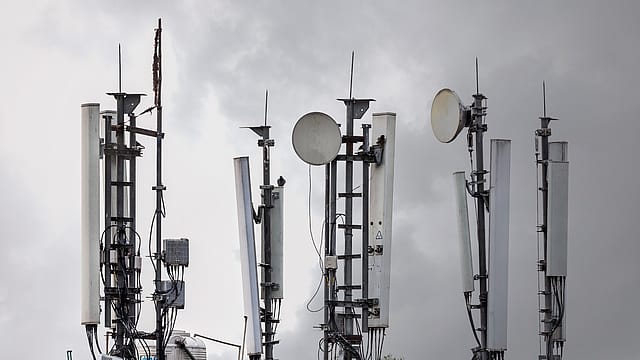TRAI unveils new licensing regime, excludes WhatsApp, FB Messenger, Telegram
ADVERTISEMENT

The Telecom Regulatory Authority of India (TRAI) has revamped the existing telecom licensing framework, according to the regulatory’s detailed recommendations released on Wednesday. The regulatory did not include communication over-the-top (OTT) services like WhatsApp, Facebook Messenger, and Telegram in its latest recommendations on authorisation or licensing regimes. The new framework is designed to streamline processes, promote competition, and enhance the ease of doing business in the telecom industry.
The tech and startup sectors have been in dispute with telecom operators over the potential inclusion of OTTs under a licensing system, a move that could have subjected them to taxation.
TRAI has lowered the entry fees for telecom licences, particularly benefiting small and medium entities. The entry fee for Access Service Authorisation in each telecom circle or metro area has been recommended to be reduced by 50%, from ₹1 crore to ₹50 lakh, and from ₹50 lakhs to ₹25 lakh for Jammu & Kashmir and the North East regions.
Trai has proposed three main categories of authorisations: Main service authorisations, Auxiliary service authorisations, and Captive service authorisations, which will encompass the full range of telecom services across India. These changes are part of an overhaul aligned with the new Telecom Act, 2023.
TRAI has introduced a new ‘Unified Service Authorisation’ to support the goal of 'One Nation - One Authorisation' for all services and service areas. Entities holding this authorisation can offer a wide range of services, including mobile, internet, broadband, landline, long-distance, satellite communications, Machine to Machine (M2M), and Internet of Things (IoT) services nationwide, with full flexibility in routing domestic traffic, it adds.
“Under the new authorisation framework, National Long Distance (NLD) service and International Long Distance (ILD) service have been merged in a single authorisation namely, 'Long Distance Service Authorisation'. This Authorisation also permits the establishment of ILD Gateway as well as Cable Landing Stations for both domestic and international submarine cables. Carrying domestic traffic through submarine cables connecting two coastal cities of India has been allowed in 'Long Distance Service Authorisation',” TRAI states.
Additionally, Trai has proposed a new ‘Satellite-based Telecommunication Service Authorisation’ for commercial satellite services, consolidating previous VSAT-CUG and GMPCS licences. Satellite telecom providers may also use satellite earth station gateways in India to serve foreign countries, subject to government approval.
The regulator has recommended the central government establish a clear pathway for financial accounting, resource numbering assignment, and spectrum allocation at the national level for Unified Service authorised entities.
“The scope of Internet Service authorisation under the new authorisation framework has been enhanced to include the provision of leased lines and virtual private networks. This will permit the Internet Service Providers to better utilise and monetise their network resources,” TRAI adds.